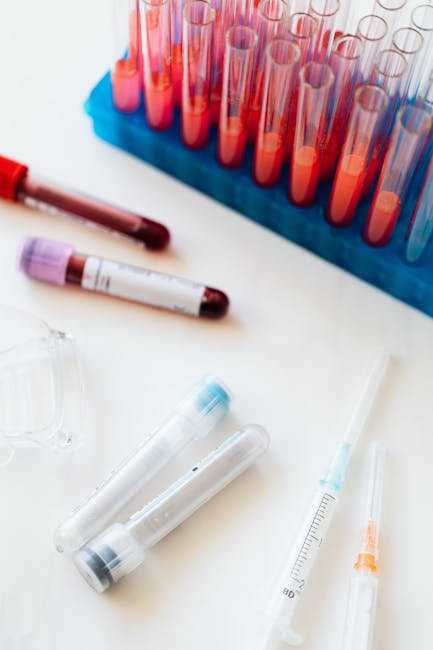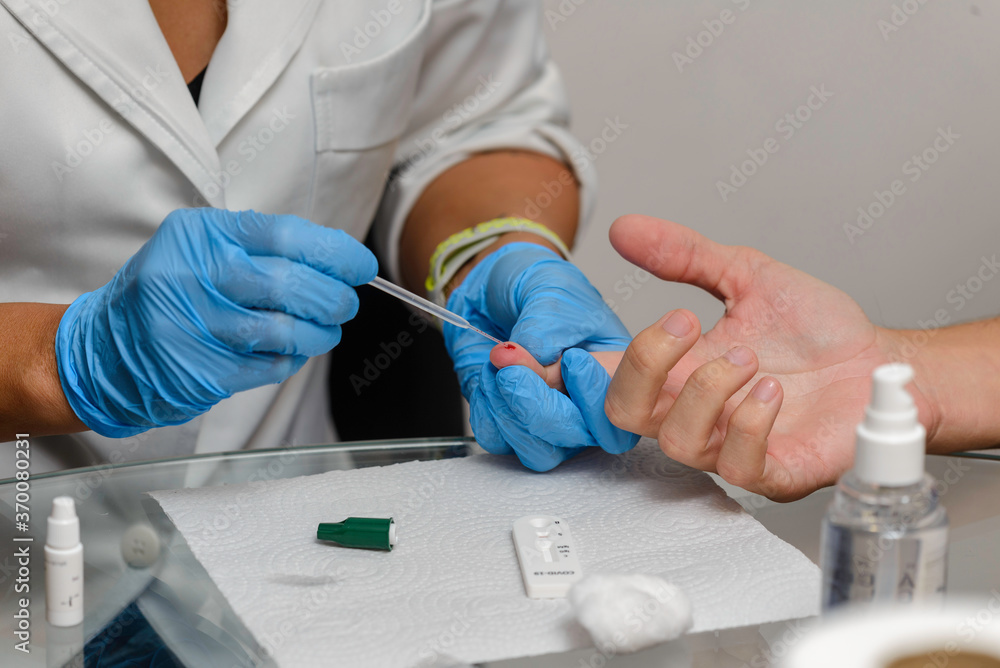- 1. What is Antibody Testing?
- 2. Why is Antibody Testing Important in Ohio?
- 3. How to Get an Antibody Test in Ohio
- 4. Understanding the Results
- 5. Real-World Implications of Antibody Testing
- 6. Antibody Testing vs. Diagnostic Testing
- 7. Guidelines and Recommendations from Health Authorities
- 8. Potential Limitations of Antibody Testing
- 9. Future of Antibody Testing in Ohio
- 10. Frequently Asked Questions About Antibody Testing in Ohio

What You Should Know About Antibody Testing After COVID in Ohio
The COVID-19 pandemic has transformed health care across the globe, and Ohio is no exception. As we continue to navigate the aftermath of the virus, understanding antibody testing is crucial for residents. This blog post will delve into what antibody testing is, how it works, its significance post-COVID, and relevant details specific to Ohio.
What is Antibody Testing?
Antibody testing, also known as serology testing, is a blood test that detects antibodies in your bloodstream. Antibodies are proteins produced by the immune system in response to an infection, including viral infections like COVID-19. There are two main types of antibodies that tests look for:
- IgM antibodies: These are typically the first type of antibody produced during an infection.
- IgG antibodies: These develop later and indicate a longer-term response to the virus.
In the context of COVID-19, these tests can identify if someone has been previously infected with the virus, even if they were asymptomatic or had mild symptoms. However, it’s important to note that a positive antibody test does not necessarily mean immunity to COVID-19.
Why is Antibody Testing Important in Ohio?
Understanding the prevalence of COVID-19 antibodies in the community can provide valuable insights into the spread of the virus and the overall public health landscape. Here are some reasons why antibody testing is particularly relevant for Ohio residents:
- Public Health Surveillance: Health authorities can use antibody testing data to monitor the extent of COVID-19 spread and inform policy decisions.
- Individual Knowledge: For individuals, knowing their antibody status can help them understand their potential exposure to the virus.
- Vaccine Insights: Antibody tests can help researchers understand how effective the vaccines are in producing an immune response.
How to Get an Antibody Test in Ohio
If you are considering getting an antibody test, the process is relatively straightforward. Here’s what you need to know:
- Eligibility: Most people can get an antibody test, but it’s recommended to consult with a healthcare provider, especially if you have underlying health conditions.
- Testing Locations: Antibody tests can be administered at various locations, including hospitals, urgent care centers, and private laboratories. Some pharmacies also offer testing services.
- Insurance Coverage: Many health insurance plans cover the cost of antibody testing, but it’s advisable to check with your provider beforehand.
Understanding the Results
Interpreting the results of an antibody test can be complex. Here’s what you should know about the potential outcomes:
- Positive Result: A positive result indicates that antibodies are present, suggesting previous exposure to the virus. However, this does not guarantee immunity or protection against future infections.
- Negative Result: A negative result means no antibodies were detected. This could indicate that you have not been infected with the virus or that your body hasn’t developed antibodies yet.
- False Positives/Negatives: It’s crucial to understand that no test is 100% accurate. False positives and negatives can occur, and results should be interpreted in conjunction with other clinical information.
Real-World Implications of Antibody Testing
Antibody testing can have significant ramifications for individuals and the community at large. For instance, in Ohio, the results from widespread antibody testing have been utilized to gauge the population’s exposure to COVID-19. According to a report from the Ohio Department of Health, antibody testing helps inform vaccination strategies and public health policies aimed at curbing the spread of the virus.
Antibody Testing vs. Diagnostic Testing
It’s essential to differentiate between antibody testing and diagnostic testing. While antibody tests measure the immune response to past infections, diagnostic tests (like PCR tests) identify current infections by detecting the virus itself. Here’s a breakdown:
- Antibody Testing: Indicates past infection and immune response.
- Diagnostic Testing: Confirms current COVID-19 infection.
For individuals experiencing symptoms or who have had recent exposure to someone diagnosed with COVID-19, diagnostic testing is the recommended course of action.
Guidelines and Recommendations from Health Authorities
Health authorities, including the Centers for Disease Control and Prevention (CDC) and the Ohio Department of Health, have outlined guidelines regarding antibody testing. Key recommendations include:
- Antibody tests should not be used as the sole basis for diagnosing COVID-19.
- Individuals who test positive for antibodies should continue to follow public health guidelines, including wearing masks and practicing social distancing.
- Participation in antibody testing can contribute to understanding the community spread and immune response to COVID-19.
Potential Limitations of Antibody Testing
While antibody testing has its advantages, it also has limitations. Here are a few to consider:
- Timeframe: Antibodies typically develop 1-3 weeks after infection, meaning testing too early may yield inaccurate results.
- Immunity Uncertainty: The presence of antibodies does not definitively indicate immunity, and it’s uncertain how long any potential immunity lasts.
- Variability in Tests: Not all antibody tests are created equal; some may have lower accuracy rates than others.
Future of Antibody Testing in Ohio
As the pandemic evolves, so too does the role of antibody testing. Ongoing research and data collection are essential for understanding COVID-19’s long-term impact on public health. In Ohio, studies are being conducted to track the effectiveness of vaccines and the potential for variants to evade immune responses. According to the Ohio University, advancements in testing technology may lead to more reliable and accessible antibody tests in the future.
Frequently Asked Questions About Antibody Testing in Ohio
1. How long does it take to get antibody test results?
Typically, results for antibody tests can take anywhere from a few hours to several days, depending on the testing facility.
2. Is antibody testing safe?
Yes, antibody testing is generally safe. The process is similar to routine blood tests and poses minimal risk.
3. Can I get an antibody test if I have had the COVID-19 vaccine?
Yes, vaccinated individuals can get antibody tests. However, it’s essential to understand that these tests may detect the body’s response to vaccination rather than past infection.
4. Should I get an antibody test if I have never had symptoms of COVID-19?
Yes, antibody testing can be beneficial even for asymptomatic individuals, as it can provide information about past exposure to the virus.
As we continue to adapt to the ongoing challenges posed by COVID-19, staying informed about antibody testing can empower Ohio residents to make better health decisions. Whether for personal knowledge, public health participation, or community safety, understanding antibody testing is a vital aspect of navigating the post-pandemic world.
